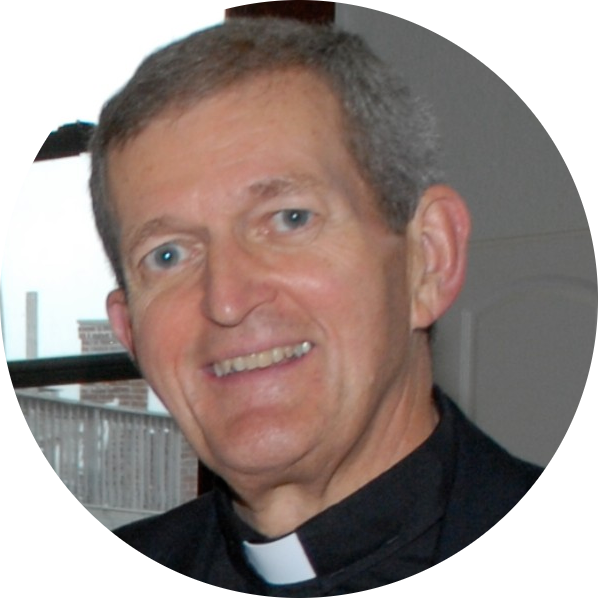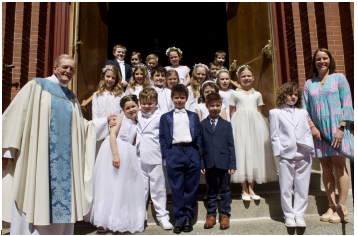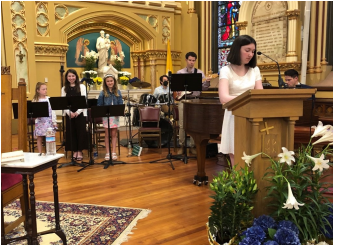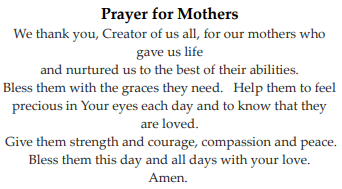
Kind of an interesting question, don’t you think? I wonder if each of us would answer in different ways. Would the answer of a child be different from that of a teenager or an adult? How about the response of an 80-year-old person – would it be very different from that of a 30 something? I wonder how my answer to this question has changed over the years. I mean there was a time when my graduate education and career were uppermost in my mind. Another chapter when my social life had high priority.
Is the “happiness” thing a sliding scale, changing from day to day or week to week or in different stages of our lives? I ask the question because these past weeks the readings at Mass in this Easter season have provoked me to wonder why I am happy and what causes my happiness. For example, we have been hearing how the Apostles Peter & John had been arrested and told to stop preaching in the name of Jesus. The early Christian community was on a collision course with religious and civic leaders of that time. Nonetheless, Peter & John and the others rejoiced that they had been found worthy of suffering for the name of Jesus!
One of the best-known persecutors of the early Christians was Saint Paul. However, after Paul’s conversion his whole life became one of service to the Gospel of Jesus Christ. His own will was so impacted by love of Christ that it became configured to Christ’s will. This harmony of wills, fueled by love, explained Paul’s amazing and ever present Joy, even in the midst of suffering of all kinds. Paul would go on to write that his life included times of wealth and of poverty, times of hunger and of abundance, times of success and of failure and he had come to regard everything as having little value other than his relationship with Christ.
Perhaps it is, therefore, that the only common denominator in life that brings happiness to any person at any stage, is the presence of love. Not a love that is very self-serving, rather a mature love that is more other-centered. Again, Paul wrote elegantly of this as well; If I achieve everything that this world has to offer, with out love, I gain nothing. He concludes his marvelous treatise on love as follows: When I was a child I used to talk like a child, think like a child, reason like a child. When I became a man I put childish ways aside … There are in the end three things that last: faith, hope and love, and the greatest of these is love. (1 Corinthians 13).
Each day of our lives there is something in front of us that promises happiness; more often than not, it includes everything from a laxative to a Cadillac. Sure, there is stuff that can be pleasing and meet passing needs and desires. However, true happiness, well that is something more. As St. Paul reveals, it is enduring, regardless of circumstances or stages of life. In fact, it sustains us throughout our life journey.
The whole world is searching for happiness – frenetically it seems. St. Paul found the answer and it is offered to each of us every day.
Fr. Ronan

Fourth Sunday of Easter – May 7/8, 2022
Jesus, the “Good Shepherd,” makes a promise in today’s Gospel to those who hear his voice and
follow him. He promises them eternal life. Amidst all the other voices that clamor for attention in
their daily lives, the voices that make demands, give advice, seek to persuade or like to gossip,
Good stewards listen for the Good Shepherd’s voice.
The other voices are legion and we do not always recognize how contrary they are to the voice of the Good Shepherd.
Good stewards know that it takes a compassionate heart, a habit of prayer, a hunger for the Eucharist and a love of neighbor for
them to truly hear the voice of the Good Shepherd.
What might we do in our daily lives to prepare us to more authentically hear the voice of the Good Shepherd?





Prayer for Mothers


